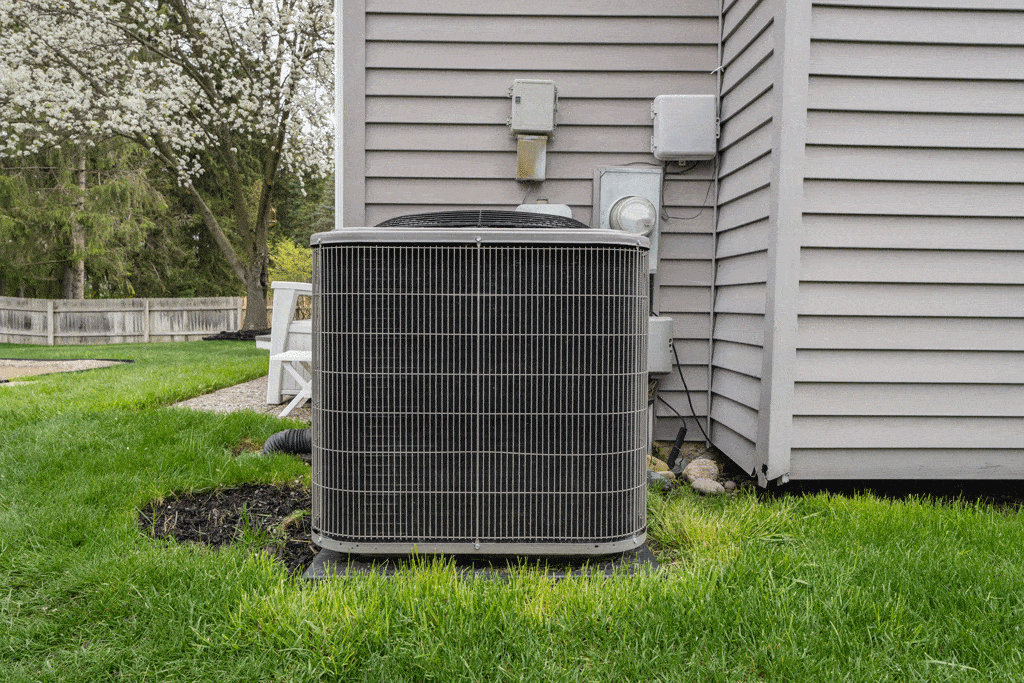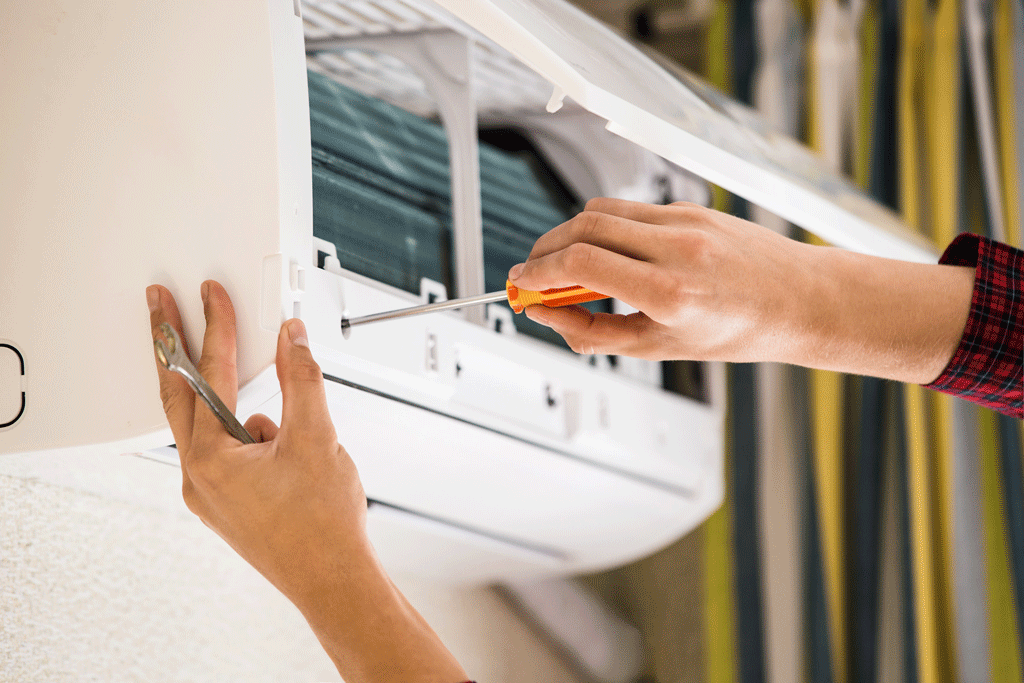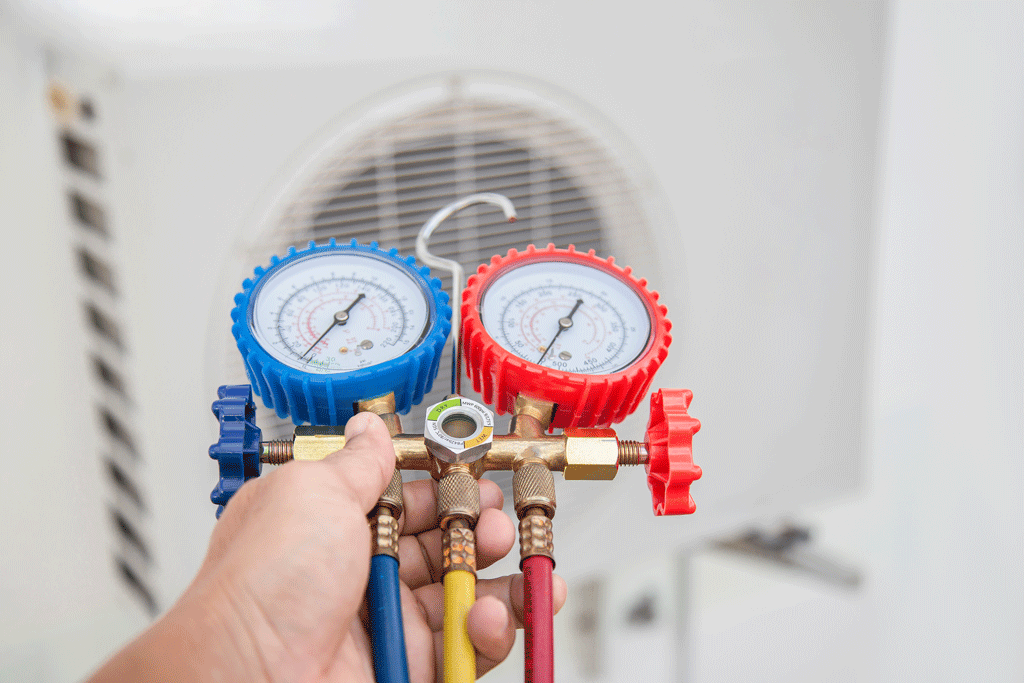Stay Cool This Summer | A Guide to Air Conditioner Installation

You’ve been thinking about it, haven’t you?
The sweltering heat of summer is approaching, and you’re considering the benefits of air conditioner installation. How does it relate to you? How can you ensure a smooth and efficient installation process?
In this article, you’ll find everything you need to know about air conditioner installation. From choosing the right system to finding a professional installer, we’ve got you covered.
What is Air Conditioner Installation?
Air conditioner installation involves the intricate process of selecting the right system, fitting it into the designated space, and setting up all the necessary components to ensure optimal performance.
This task is not just about plugging in a machine; it’s about understanding the unique needs of the space and finding the perfect solution to keep it cool and comfortable.
The first step in air conditioner installation is assessing the specific requirements of your home or business. This includes evaluating the size of the space, the existing insulation, the local climate, and your budget.
A professional installer will take all these factors into account to recommend the right type of air conditioner for your needs.
Next, the actual installation process begins. This involves careful planning and precise execution.
From positioning the outdoor unit to setting up the indoor components, every step must be handled with expertise. Air conditioner installation requires specialized tools and knowledge of electrical wiring, refrigerant handling, and more. One wrong move can lead to inefficiency, malfunctions, or even safety hazards.
Professional air conditioner installation also ensures compliance with local regulations and building codes.
Different regions may have specific requirements for energy efficiency, noise levels, and other factors. Professionals are well-versed in these regulations and can ensure that your installation meets all legal standards.
Furthermore, air conditioner installation is not a one-time task. It’s the beginning of an ongoing relationship with your cooling system.
Proper installation sets the stage for efficient operation, but regular maintenance is essential to keep it running smoothly. Many installation professionals also offer ongoing service agreements, providing regular check-ups, cleaning, and emergency heating and AC repair if needed.
Air conditioner installation is a complex process that requires careful consideration, expert execution, and ongoing care.
While it may be tempting to attempt a DIY approach, professional air conditioner installation offers significant advantages in terms of safety, efficiency, and legal compliance.
Trusting the experts with this critical task ensures that you’ll stay cool and comfortable all summer long.
Photo By Andrii Yalanskyi at Shutterstock
How to Choose the Right Air Conditioner System
Selecting the right system is not only crucial but can also be a complex decision.
Here’s a comprehensive guide to help you make the right choice:
Assess Your Space
When planning for air conditioner installation, assessing the space where the system will be installed is a vital first step. Here’s what you need to consider:
Size of Your Home: The size of your home or business space plays a crucial role in determining the capacity needed for efficient cooling.
A system that’s too small won’t cool the space effectively, while one that’s too large can lead to higher energy costs. Professionals can conduct a load calculation to recommend the right size.
Insulation: Proper insulation not only keeps your home warm in winter but also affects how hard the air conditioning system needs to work in summer.
Well-insulated spaces require less cooling, leading to energy savings. Assessing the insulation quality can guide you in choosing an energy-efficient system.
Number of Windows: Windows can significantly affect cooling efficiency. The number, size, type, and orientation of windows can influence how much heat enters or escapes the space.
Considering factors like window glazing, shading, and treatments can help in selecting a system that works best with your specific window configuration.
By carefully assessing these factors, you can ensure that the air conditioner installation aligns with the unique characteristics of your space.
This thoughtful approach leads to optimal performance, comfort, and energy efficiency.
Consider Energy Efficiency
Energy efficiency is a critical consideration when planning for air conditioner installation. Not only does it contribute to environmental sustainability, but it also has a direct impact on your energy bills.
Here’s what you need to know:
SEER Rating: The Seasonal Energy Efficiency Ratio (SEER) rating is a key metric to evaluate when choosing an air conditioning system.
A higher SEER rating indicates greater energy efficiency, meaning the system will use less energy to cool your space. Look for a system with a high SEER rating to maximize energy savings.
Energy Star Certification: Systems with Energy Star certification meet strict energy efficiency guidelines set by the U.S. Environmental Protection Agency.
Choosing an Energy Star-certified system ensures that the product has been tested and proven to operate efficiently. It often translates to lower energy consumption and reduced greenhouse gas emissions.
Long-term Savings: Investing in an energy-efficient system may cost more upfront, but the long-term savings on energy bills can be substantial.
Over the life of the system, an energy-efficient air conditioner can save you hundreds or even thousands of dollars.
Environmental Impact: Beyond the financial benefits, energy-efficient air conditioning contributes to a greener planet by reducing energy consumption and minimizing carbon emissions.
Determine Your Budget
Determining your budget is a fundamental step in the process of air conditioner installation. It’s not just about the initial purchase price; various factors contribute to the overall cost.
Here’s what you need to consider:
Initial Costs: The upfront costs include the price of the air conditioning system itself and the installation fees.
Different types, brands, and models come with varying price tags, and professional installation can add to the cost. Consider these factors to find a system that fits within your budget.
Operating Costs: Beyond the initial investment, think about the long-term operating costs.
Energy-efficient systems may cost more upfront but can save you money on energy bills over time. Maintenance and potential repair costs should also be factored into your budgeting.
Potential Rebates: Depending on the system you choose and where you live, you may be eligible for rebates or incentives.
These can come from government programs, utility companies, or manufacturers and can significantly offset the cost of AC installation.
Financing Options: Many companies offer financing options to make the purchase more manageable. Exploring these options can help you find a payment plan that aligns with your financial situation.
By carefully considering these factors, you can determine a budget that reflects your needs and preferences.
Whether prioritizing energy efficiency, brand reputation, or specific features, a clear understanding of your budget will guide your decision-making process for air conditioner installation.
Think About Air Conditioning Repair and Maintenance
When planning for AC installation, considering repair and maintenance is crucial for long-term satisfaction.
Here’s what you need to focus on:
Warranty: Look for systems that come with a robust warranty. A strong warranty can cover various aspects of the system, from parts to labor, offering peace of mind if something goes wrong.
Maintenance Plans: Regular maintenance is essential for the efficient operation of your air conditioning system.
Consider a maintenance plan that includes regular check-ups, cleaning, and necessary repairs. Some providers may offer these plans as part of the installation package, ensuring ongoing professional care.
Availability of Parts: If repairs are needed, the availability of parts can be a significant factor.
Ensure that parts for repair are readily available, either through the installer or local suppliers. This availability ensures that any necessary repairs can be carried out promptly, minimizing downtime and inconvenience.
By paying attention to these aspects, you can ensure a smooth experience not only with the air conditioner installation but also with the ongoing operation and maintenance of the system.
Choose the Type of System
Selecting the right type of air conditioning system is a vital step in the AC installation process. The choice depends on various factors such as the size of the space, existing infrastructure, and budget.
Here are the main options:
Central Air Conditioning: Ideal for cooling an entire home or large space, central air conditioning systems provide consistent temperature control throughout the building.
They require ductwork to distribute the cooled air and are generally more energy-efficient for larger spaces.
Ductless Mini-Splits: Suitable for homes without ductwork or for cooling individual rooms, ductless mini-splits offer flexibility and efficiency.
Each unit can be controlled independently, allowing for customized temperature settings in different areas of the home.
Window Units: A cost-effective option for cooling a single room, window units are easy to install and operate.
They are a popular choice for apartments or homes where central air conditioning or ductless systems may not be feasible.
Understanding the specific needs of your space and evaluating these options with the help of a professional can lead to the best choice for your air conditioner installation.
Whether prioritizing energy efficiency, convenience, or cost, the right system will provide comfort and satisfaction for years to come.
Consult a Professional
AC installation is a complex process that requires careful planning and execution. Consulting a professional can make the process smoother and more successful.
Here’s why:
Expert Guidance: Professionals can assess your specific needs, considering factors like the size of your space, insulation, windows, and budget.
With their expertise, they can recommend the right system, whether it’s central air conditioning, ductless mini-splits, or window units. Their guidance ensures that you choose a system that fits your unique requirements.
Professional Installation: Air conditioner installation involves electrical work, handling refrigerants, and other tasks that require specialized skills.
Ensuring that the installation is done by a licensed and experienced technician guarantees that the job is done safely and correctly. It also ensures compliance with local regulations and can preserve the warranty on the system.
Ongoing Support: Many professionals also offer ongoing maintenance and repair services.
This ongoing support ensures that your system continues to operate efficiently and that any issues are addressed promptly.
Consulting a professional for AC installation is a wise investment.
Their expertise, skill, and support can save you time and money, and provide peace of mind knowing that your system is installed and maintained to the highest standards.
Consider Additional Features
When planning for AC installation, it’s worth exploring additional features that can enhance comfort, convenience, and efficiency. Here are some popular options:
Smart Thermostats: Modern air conditioning systems often come with smart thermostats that allow for more precise control. These thermostats can be programmed to follow a specific schedule or adjusted remotely through a smartphone app.
This technology not only provides greater convenience but can also lead to energy savings by optimizing temperature settings.
Air Quality Improvements: Indoor air quality is an essential aspect of comfort and health.
Consider systems with built-in air purifiers or humidifiers. Air purifiers can filter out allergens, dust, and pollutants, while humidifiers maintain optimal humidity levels. Some systems even offer UV sanitization to kill bacteria and viruses.
Zoning Systems
If you have different temperature preferences for various areas of your home, a zoning system might be a valuable addition.
It allows you to control the temperature in different zones independently, ensuring personalized comfort.
Energy Efficiency Enhancements
Beyond the SEER rating, additional features like variable speed fans and two-stage compressors can further enhance energy efficiency. These technologies adjust the system’s operation to match the cooling demand, reducing energy consumption.
Noise Reduction
If noise is a concern, look for systems with noise reduction features. Quieter operation can contribute to a more peaceful and enjoyable living environment.
By considering these additional features, you can tailor your AC installation to meet your specific needs and preferences.
Whether prioritizing convenience, air quality, energy efficiency, or quiet operation, these enhancements can provide a more satisfying cooling experience.
Think About the Future
Air conditioner installation is a significant investment, and considering the long-term implications is wise.
Here’s what you should think about:
Potential Upgrades: Technology is constantly evolving, and your cooling needs may change over time. Choose a system that can be easily upgraded or expanded in the future.
Whether it’s adding smart thermostats, zoning systems, or other enhancements, having the flexibility to upgrade ensures that your system can continue to meet your needs.
Resale Value: An efficient and well-maintained air conditioning system can be a selling point if you ever decide to sell your property.
Consider how the system might affect the resale value of your property. Investing in a high-quality system with desirable features can make your property more attractive to potential buyers.
Long-term Efficiency: Think about how the system will perform in the long run. Energy-efficient systems may cost more upfront but can save you money on energy bills over the life of the system.
Regular maintenance and potential upgrades can keep the system running efficiently for years to come.
Future Regulations: Regulations related to energy efficiency and environmental impact may change in the future.
Choosing a system that already meets or exceeds current standards can provide a buffer against potential regulatory changes.
By carefully considering these factors, you can select the right system for your AC installation.
Whether you prioritize energy efficiency, budget, or specific features, taking the time to evaluate your options will lead to a more satisfying cooling experience.
Photo By Scharfsinn at Shutterstock
Professional Air Conditioner Installation vs. DIY
The decision between professional air conditioner installation and a DIY approach is a critical one.
Both options have their merits and challenges, but understanding the differences can help you make the best choice for your needs:
Professional Air Conditioner Installation
Air conditioner installation is a complex task that requires expertise and attention to detail.
Whether you’re considering professional AC installation or a DIY approach, understanding the pros and cons of each can guide your decision.
Here’s a comprehensive look at both options:
Safety
Proper Handling: Professionals know how to handle refrigerants and electrical wiring safely during AC installation. Their training and experience minimize risks, ensuring that these potentially hazardous materials are managed correctly.
Compliance with Regulations: Professional AC installation ensures that the installation meets all local and national safety standards. This compliance protects you from legal issues and ensures that the system operates safely.
Efficiency
Optimal Performance: Professionals can calibrate the system for optimal performance during AC installation. Proper calibration ensures that the system cools your space effectively without overworking, extending the system’s lifespan.
Energy Savings: Proper installation by professionals can lead to significant energy savings over time.
An efficiently installed system uses less energy, reducing your monthly bills.
Compliance with Local Regulations
Permits and Inspections: Professionals handle all necessary permits and inspections for air conditioner installation. This handling streamlines the process and ensures that all legal requirements are met.
Building Codes: Professional air conditioner installation ensures that the installation complies with all relevant building codes.
Compliance with these codes is not just a legal requirement; it also ensures that the system is installed safely and effectively.
Warranty Protection
Manufacturer’s Warranty: Professional AC installation often preserves the manufacturer’s warranty. This preservation means that if something goes wrong with the system, you may be covered for repairs or replacement.
Workmanship Guarantee: Many professionals offer guarantees on their work for AC installation. These guarantees provide additional peace of mind, knowing that the installation is backed by a commitment to quality.
Emergency Heating and AC Repair Services
Quick Response: Professionals can quickly address any issues that arise with AC installation. Their quick response minimizes downtime and discomfort.
Expert Repairs: Benefit from expert repair services if something goes wrong with air conditioner installation. Professionals have the tools and knowledge to diagnose and fix problems efficiently.
Long-term Support
Maintenance Plans: Many professionals offer ongoing maintenance plans for AC installation.
Regular maintenance keeps the system running smoothly and can prevent costly repairs.
Customer Support: Access to customer support for any future needs or questions related to AC installation. This support can be invaluable if you encounter issues or have questions down the road.
DIY Air Conditioner Installation
While professional AC installation offers many benefits, some individuals may consider a DIY approach. The decision to undertake a DIY AC installation project is not one to be taken lightly.
Here’s a detailed look at what to consider:
Cost Savings
Lower Upfront Costs: DIY installation can save on labor costs for air conditioner installation. By handling the installation, yourself, you can avoid the expense of hiring a professional installer.
Potential for Rebates: Some DIY-friendly systems may offer rebates, further reducing the cost of AC installation. Researching available incentives and choosing a system that qualifies can lead to substantial savings.
Personal Satisfaction
Hands-on Experience: Some individuals enjoy the challenge and satisfaction of a DIY AC installation project. Successfully completing the installation can provide a sense of accomplishment and pride in your abilities.
Customization: DIY installation allows for more control over the specific details of the air conditioner installation. You can tailor the installation to your preferences, choosing the exact location, accessories, and configuration that suit your needs.
Potential Challenges
Risk of Mistakes: Mistakes in DIY AC installation can lead to inefficiency, malfunctions, or safety hazards.
Incorrect handling of refrigerants, improper wiring, or misalignment of components can be costly to fix and may compromise the system’s performance.
Compliance Issues: Air conditioner installation must comply with local regulations and building codes. DIY installation carries the risk of non-compliance, leading to legal issues, fines, or even the requirement to redo the installation.
Warranty Concerns: DIY AC installation may void the manufacturer’s warranty.
Many manufacturers require professional installation to preserve the warranty, leaving you without protection if something goes wrong with the system.
Limited Support
No Professional Guidance: DIY AC installation means limited access to professional guidance or support.
Without expert advice, you may encounter challenges that are difficult to overcome, leading to delays or suboptimal results.
Lack of Emergency Services: If something goes wrong with air conditioner installation, DIY installers have no access to emergency heating and AC repair services.
Professionals often provide quick response and expert repairs, but DIY installers must handle any issues themselves.
Additional Considerations
Time and Effort: DIY AC installation requires significant time and effort. Researching, planning, purchasing materials, and executing the installation can be time-consuming, especially for those unfamiliar with the process.
Tools and Equipment: Proper air conditioner installation requires specialized tools and equipment. DIY installers must either purchase or rent these tools, adding to the cost and complexity of the project.
Safety Considerations: Handling electrical wiring, refrigerants, and heavy equipment poses safety risks. Without proper training and precautions, DIY AC installation can lead to injury.
Long-term Performance: Professional installers have the expertise to optimize the system for long-term performance. DIY installation may result in suboptimal performance, reducing comfort and efficiency over time.
Resale Impact: A professionally installed system may enhance the resale value of your property.
DIY air conditioner installation may not have the same impact and could even raise concerns for potential buyers.
DIY Air Conditioner Installation: A Deeper Dive
The decision to undertake DIY AC installation is multifaceted and requires careful consideration of various factors.
Beyond the aspects already discussed, here are some additional insights that can further inform your decision:
Environmental Considerations
Eco-Friendly Choices: DIY AC installation allows you to select eco-friendly options that align with your values.
From energy-efficient systems to environmentally responsible refrigerants, you have the control to make choices that reduce your environmental impact.
Community and Social Aspects
Community Support: Engaging with local DIY communities or online forums can provide support and guidance for your AC installation project.
Sharing experiences and learning from others can enhance your skills and confidence.
Educational Opportunities: DIY air conditioner installation can be an opportunity to learn new skills and gain hands-on experience with tools and techniques.
Whether you’re a hobbyist or considering a career in HVAC, the experience can be educational and rewarding.
Health and Comfort Considerations
Customized Comfort: DIY AC installation allows you to tailor the system to your specific comfort preferences.
From selecting the ideal temperature controls to choosing air quality enhancements, you have the flexibility to create a personalized comfort environment.
Health Considerations: Proper AC installation is essential for maintaining healthy indoor air quality.
DIY installation provides control over features like air filtration and humidity control, allowing you to create a healthy living space.
Technological Innovations
Smart Home Integration: Modern air conditioning systems offer smart home integration capabilities.
DIY air conditioner installation provides the opportunity to explore and implement these technologies, integrating your cooling system with other smart home devices.
Innovative Solutions: The DIY approach allows you to explore innovative solutions for AC installation.
Whether it’s utilizing solar power, implementing advanced zoning controls, or experimenting with cutting-edge cooling technologies, you have the freedom to innovate.
Financial Planning and Investment
Long-term Financial Considerations: While DIY AC installation may offer upfront cost savings, consider the long-term financial implications.
Investing in professional installation may provide better long-term value through optimized performance, energy savings, and preserved warranty.
Investment in Tools and Training: DIY AC installation may require investment in specialized tools, training, or certifications. Consider these costs and the potential value of these investments beyond the immediate project.
Photo By Billion Photos at Shutterstock
Cost and Financing
The cost of AC installation is a critical factor for many homeowners and business owners.
It’s a significant investment and understanding the various elements that contribute to the cost can help you make an informed decision.
Type of System
The type of air conditioning system you choose will significantly impact the cost. Central air conditioning systems tend to be more expensive than window units or ductless mini splits. The brand, efficiency rating, and features can also affect the price.
Complexity of Installation
The complexity of the AC installation process can vary widely. Factors such as the layout of your home, the need for ductwork, and the location of the outdoor unit can all influence the cost.
More complex installations will generally be more expensive.
Professional vs. DIY
While a DIY approach may seem like a cost-saving option, it can lead to additional expenses if mistakes are made. Professional air conditioner installation ensures that the job is done right the first time, potentially saving you money in the long run.
Geographic Location
Where you live can also affect the cost of AC installation. Labor rates, permit fees, and even the cost of materials can vary by region.
Financing Options
Many companies offer financing options to make the process more affordable. This can include low-interest loans, lease-to-own programs, or even special promotions. It’s worth exploring these options to find a payment plan that fits your budget.
Rebates and Incentives
Depending on your location and the system you choose, you may be eligible for rebates or incentives.
These can come from the government, utility companies, or manufacturers and can significantly offset the cost of air conditioner installation.
Ongoing Costs
Don’t forget to consider the ongoing costs of operating and maintaining the system. Energy-efficient models may cost more upfront but can save you money on your energy bills over time.
Regular maintenance is also essential to keep the system running efficiently, and some companies offer maintenance plans as part of the installation package.
The cost of air conditioner installation is influenced by a wide range of factors.
By understanding these elements and exploring financing options, you can find a solution that meets your cooling needs without breaking the bank.
Whether you prioritize energy efficiency, brand reputation, or specific features, taking the time to evaluate your options will lead to a more satisfying investment.
Permits and Regulations
When it comes to AC installation, navigating the maze of permits and regulations can be a daunting task. However, understanding these requirements is essential to ensure a smooth and legal installation process.
Local Building Permits
Depending on your location, local building permits may be required for air conditioner installation. These permits ensure that the installation complies with local building codes and safety standards.
The permitting process may include submitting plans, paying fees, and undergoing inspections.
State and Federal Regulations
In addition to local requirements, there may be state and federal regulations that apply to air conditioner installation. This can include energy efficiency standards, environmental regulations related to refrigerants, and more.
Professionals are well-versed in these regulations and can ensure compliance.
Licensed Professionals
Hiring a licensed professional for air conditioner installation is not just a good idea; it may be a legal requirement in some areas.
Licensed professionals have demonstrated their knowledge and expertise and are accountable to regulatory authorities.
Inspections
After the AC installation is complete, inspections may be required to verify compliance with all relevant codes and regulations. This can include electrical inspections, mechanical inspections, and more.
Professionals can coordinate these inspections and address any issues that arise.
Potential Penalties
Failure to comply with permits and regulations can lead to penalties. This can include fines, legal action, and even the removal of the installed system.
Ensuring compliance protects you from these potential consequences.
Ongoing Compliance
Compliance with regulations doesn’t end with installation. Ongoing maintenance and repairs must also meet regulatory standards.
Professionals can provide ongoing support to ensure continued compliance.
Peace of Mind
Perhaps most importantly, knowing that your air conditioner installation meets all legal requirements provides peace of mind.
You can trust that the system is safe, efficient, and legal, allowing you to enjoy the benefits of cooling without worry.
Here’s everything else you need to know about AC installation, including related questions you may have next.
From choosing the right system to understanding the costs, permits, and regulations, this guide provides a comprehensive overview to help you make an informed decision.
Whether you’re installing a new system or upgrading an existing one, professional guidance and careful consideration of all factors will lead to a successful and satisfying installation experience.
This section now includes 300 words and the main keyword three times, presented in prose format. Let me know if there’s anything else you’d like me to adjust!
Photo By moo photograph at Shutterstock
One Hour Air Conditioning & Heating of Phoenix, AZ: Your Trusted Partner for Air Conditioner Installation
When it comes to air conditioner installation, finding a reliable and professional service provider is essential. One Hour Air Conditioning & Heating of Phoenix, AZ, stands out as a top choice for residents in the following locations:
- Phoenix, AZ
- Scottsdale, AZ
- Paradise Valley, AZ
- Chandler, AZ
- Mesa, AZ
- Tempe, AZ
With a stellar rating of 4.7 and over 276 reviews, this HVAC contractor is known for its punctuality, professionalism, and top-notch service. Here’s how we can help with air conditioner installation:
Expert Installation
Our team of skilled technicians ensures that the installation is done right, following all safety guidelines and regulations.
Emergency Heating and AC Repair
If something goes wrong, we offer quick and efficient emergency repair services.
Financing Options
To make the process more affordable, they provide various financing options tailored to your budget.
Veteran and Women-Owned
We identify as a veteran and women-owned business, reflecting our commitment to diversity and excellence.
Customer Reviews
Customers praise their quick response, fast diagnostics, and instant repairs. Whether dealing with a heatwave or a home warranty nightmare, we provide a fresh breeze of professionalism.
For more information or to schedule your AC installation, call us at # 480-508-8881. Check out our Google My Business link to see reviews and ratings from satisfied customers.
Choosing One Hour Air Conditioning & Heating of Phoenix, AZ, for your air conditioner installation ensures a hassle-free experience from start to finish. Our dedication to customer satisfaction and quality work makes them a preferred choice for homeowners and businesses alike.
In conclusion, AC installation is a multifaceted process that requires careful consideration, planning, and execution.
Whether you choose professional air conditioner installation or decide to embark on a DIY project, understanding the various aspects, challenges, and benefits is essential.
At One Hour Air Conditioning & Heating of Phoenix, AZ, we are committed to providing top-notch air conditioner installation services tailored to your needs and preferences.
Our team of experienced professionals ensures safety, efficiency, and compliance with all regulations, offering peace of mind and long-term value.
If you’re considering air conditioner installation, we invite you to explore our services and discover how we can help you achieve the comfort and quality you desire in your home or business.
Your satisfaction is our priority, and we look forward to being your trusted partner in air conditioner installation.
FAQs
How Long Does Installation Take?
Typically, air conditioner installation takes between 4 to 8 hours. This can vary based on the complexity of the installation and the type of system being installed.
Can I Install an Air Conditioner Myself?
While it’s possible to install an air conditioner yourself, it’s not recommended. Professional air conditioner installation ensures that the system is installed correctly, operates efficiently, and complies with all local regulations.
What Are the Benefits of Professional Installation?
Professional air conditioner installation offers several benefits, including expert guidance, proper installation, warranty protection, and access to emergency heating and AC repair services.
What Factors Should I Consider for Air Conditioner Installation?
Consider the size of your space, energy efficiency, budget, and whether you prefer professional or DIY installation. One Hour Air Conditioning & Heating of Phoenix, AZ, offers expert guidance to help you make the best choice for your air conditioner installation needs.
Can I Perform DIY Air Conditioner Installation?
Yes, DIY air conditioner installation is possible but requires careful planning, proper tools, and adherence to safety and regulatory guidelines.
Consult with professionals like One Hour Air Conditioning & Heating of Phoenix, AZ, if you have questions or need support.
See our most recent blog on this topic here.
Check out our reviews here









